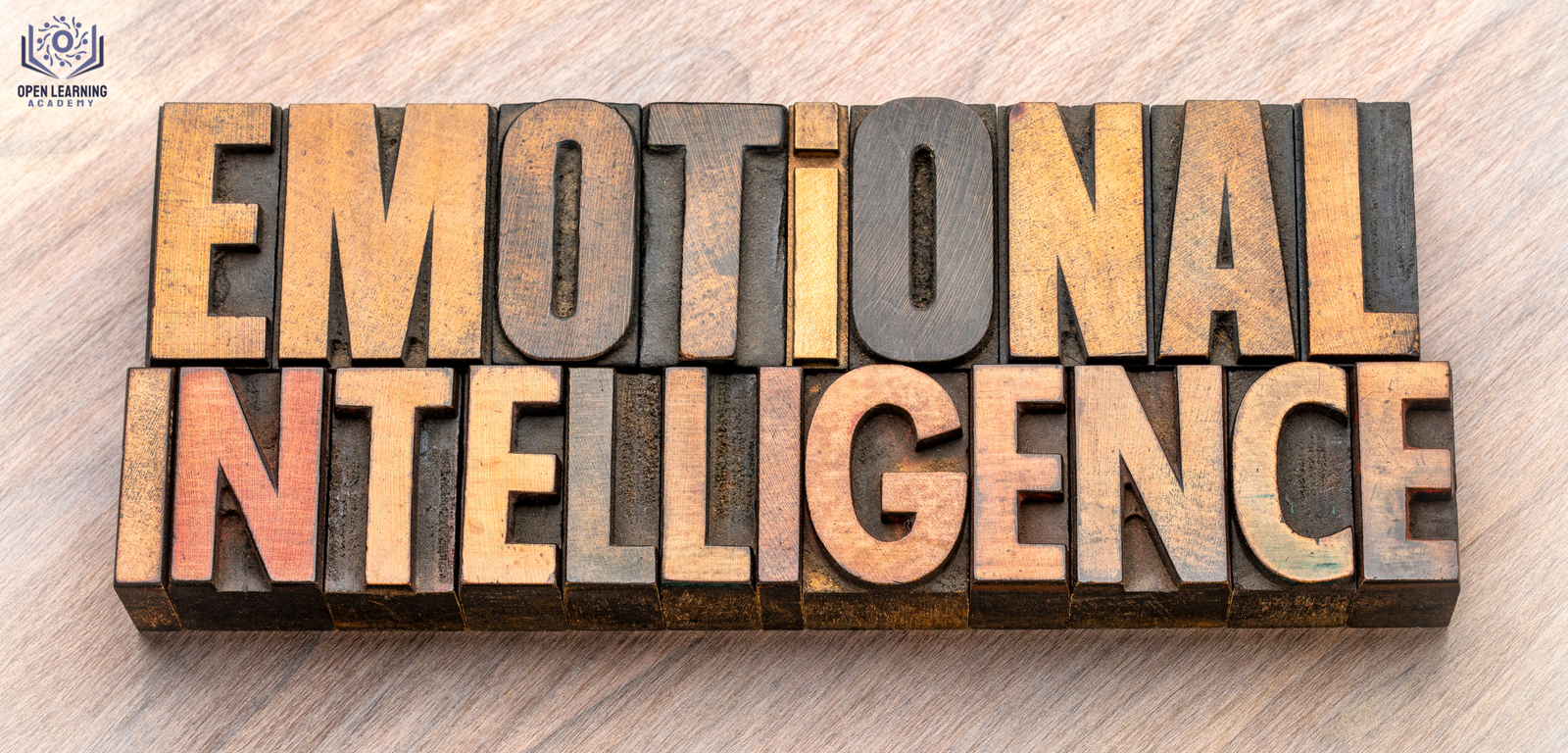No products in the cart.
Why do you think some people can easily understand others or remain calm in stressful situations? The answer often lies in emotional intelligence (EI). Emotional intelligence refers to the ability to recognise, understand, manage, and influence emotions—both in oneself and in others. But how do you know if you, or someone else, possess high EI? So, let’s explore the signs of emotional intelligence and why they matter.
What is Emotional Intelligence?
Emotional intelligence (EI) is the ability to understand and manage your own emotions, as well as those of others. It influences how we interact with people, solve problems, and handle our feelings. While IQ focuses on logical thinking, EI is more about recognising and managing emotions in different situations, both at work and in personal life.
People with high EI are aware of their feelings, can empathise with others, and know how to manage emotions positively. As a result, they build stronger relationships, communicate more effectively, and handle challenges with greater ease. Moreover, EI helps you navigate social situations smoothly and respond to others with care. Therefore, it is a valuable skill that enhances many areas of life.

Key Elements That Make Up Emotional Intelligence
EI is broken down into five main components, each contributing to how well we understand and manage our emotions. The five key components are:
- Self-awareness: This refers to the ability to recognise your emotions and understand how they influence your thoughts and actions. Moreover, it helps you become more in tune with your emotional responses, allowing for better self-reflection.
- Self-regulation: Self-regulation involves the capacity to manage or redirect disruptive emotions and impulses. As a result, it enables you to adapt more easily to changing circumstances and maintain composure in difficult situations.
- Motivation: Motivation is the inner drive to achieve goals for personal satisfaction rather than external rewards. Thus, individuals with high EI often find greater fulfilment in the pursuit of their objectives.
- Empathy: Empathy is the ability to recognise and share the emotions of others. Consequently, this trait fosters stronger connections and enhances your ability to respond thoughtfully to the needs of those around you.
- Social skills: Social skills are essential for managing relationships and building networks effectively. Therefore, people with strong social skills can navigate social dynamics with ease, creating positive, lasting interactions.
Signs of Emotional Intelligence
While emotional intelligence is an internal skill, it shows itself through your behaviour and interactions with others. So, here are some key signs of emotional intelligence:
Ability to Influence Other People
A person with emotional intelligence can influence others without being manipulative. Moreover, they build trust and connect with people on an emotional level, which makes it easier to motivate and help others. Whether in a leadership role, as a supportive friend, or when encouraging a group to take action, their ability to understand and relate to others enhances their impact.
Handling Challenging Situations with Ease
Those who are emotionally intelligent are particularly adept at managing difficult situations. As a result, they can handle stressful or confrontational moments with composure, ensuring the situation doesn’t escalate unnecessarily. For example, if there’s a disagreement in a meeting, they can mediate and find common ground without letting emotions cloud their judgment. Furthermore, their ability to stay calm and focused helps maintain a positive environment even in challenging circumstances.
Clear and Effective Self-Expression
People who possess strong emotional intelligence are very good communicators. They don’t just express their thoughts but do so in a clear, effective way. In addition, they know how to share their feelings without overwhelming others, ensuring their message is understood while being mindful of the emotional tone. As a result, this skill is beneficial in both personal and professional settings, where clarity and understanding are key.
Awareness of Personal Strengths and Areas for Growth
Self-awareness is an important part of emotional intelligence. People with high EI are able to clearly identify their strengths and weaknesses. In fact, they are comfortable acknowledging their limitations, which allows them to seek help when needed and work on areas for improvement. This ability to understand themselves leads to better decision-making and personal growth.
Ability to Assess Others’ Character
The ability to read others is an important aspect of emotional intelligence. People who are emotionally intelligent have a knack for understanding the emotions and intentions of those they interact with. As a result, this skill allows them to handle social situations better, avoid conflict, and build strong, genuine relationships based on trust and mutual respect.
Deep Empathy for Others’ Emotions
Empathy is a cornerstone of emotional intelligence. In fact, empathetic people can understand and share how others are feeling. They don’t just notice someone’s emotions—they truly feel them. As a result, this helps them offer support, comfort, and have meaningful conversations. Also, empathy allows people with high EI to build trust and connect with others easily.
Ability to Forgive and Let Go of Resentment
Holding onto grudges can stop you from growing and add stress to your life. Emotionally intelligent people don’t stay angry for long. They know how to forgive and move on because they understand that holding onto bad feelings only hurts them. As a result, letting go of grudges helps them keep their relationships calm and positive.
Self-Control in Thoughts and Behaviour
The ability to manage one’s thoughts and actions, particularly in stressful or emotional situations, is a key sign of emotional intelligence. People with high EI take a step back before reacting, allowing them to choose how to respond rather than reacting impulsively. This control helps them remain calm under pressure and make decisions that align with their values and goals.
Ability to Apologise
Emotional intelligence includes the ability to apologise sincerely. Emotionally intelligent people take responsibility for their actions and see apologies as a way to repair relationships and build trust. Furthermore, this reflects their empathy, self-awareness, and focus on maintaining healthy connections.

How to Develop Your Emotional Intelligence
While some people may naturally possess emotional intelligence, it is also something that can be developed over time. So, here are some strategies to help improve your EI:
- Practice Self-Reflection: To start, taking the time to reflect on your emotions, actions, and reactions is a great way to build self-awareness. Regularly ask yourself how you feel and why. Furthermore, consider keeping a journal to track your emotional responses throughout the day and identify any patterns.
- Work on Active Listening: Improving your empathy and social skills starts with active listening. So, instead of focusing on what you will say next, concentrate on understanding the other person’s point of view. Additionally, pay attention to both verbal and non-verbal cues to fully grasp their message.
- Develop Emotional Regulation Techniques: In addition, learning to manage your emotions in difficult situations is key to emotional intelligence. For example, try techniques such as deep breathing, mindfulness, or even taking a short break to regain composure before responding in stressful moments.
- Enhance Communication Skills: Moreover, strong communication is at the heart of emotional intelligence. Practise expressing your thoughts and feelings clearly and respectfully. At the same time, listen attentively and ensure others have space to share their opinions.
- Set Personal Goals and Stay Motivated: Lastly, developing intrinsic motivation begins with setting goals that matter to you. By focusing on personal growth and keeping track of your progress, you will find it easier to stay motivated and on course, even when faced with obstacles.
Conclusion
By recognising the signs of EI and, therefore, understanding how to develop these traits, you can significantly improve your interactions with others. Moreover, this can help increase your leadership potential and, as a result, build a more fulfilling career and personal life. Whether you’re looking to manage stress, resolve conflicts, or simply connect better with people, EI is undoubtedly a key factor that can help you succeed in all areas of life.
Unlock your full potential with Open Learning Academy’s Emotional Intelligence Course – enhance your relationships, leadership skills, and career success by mastering EI today!




